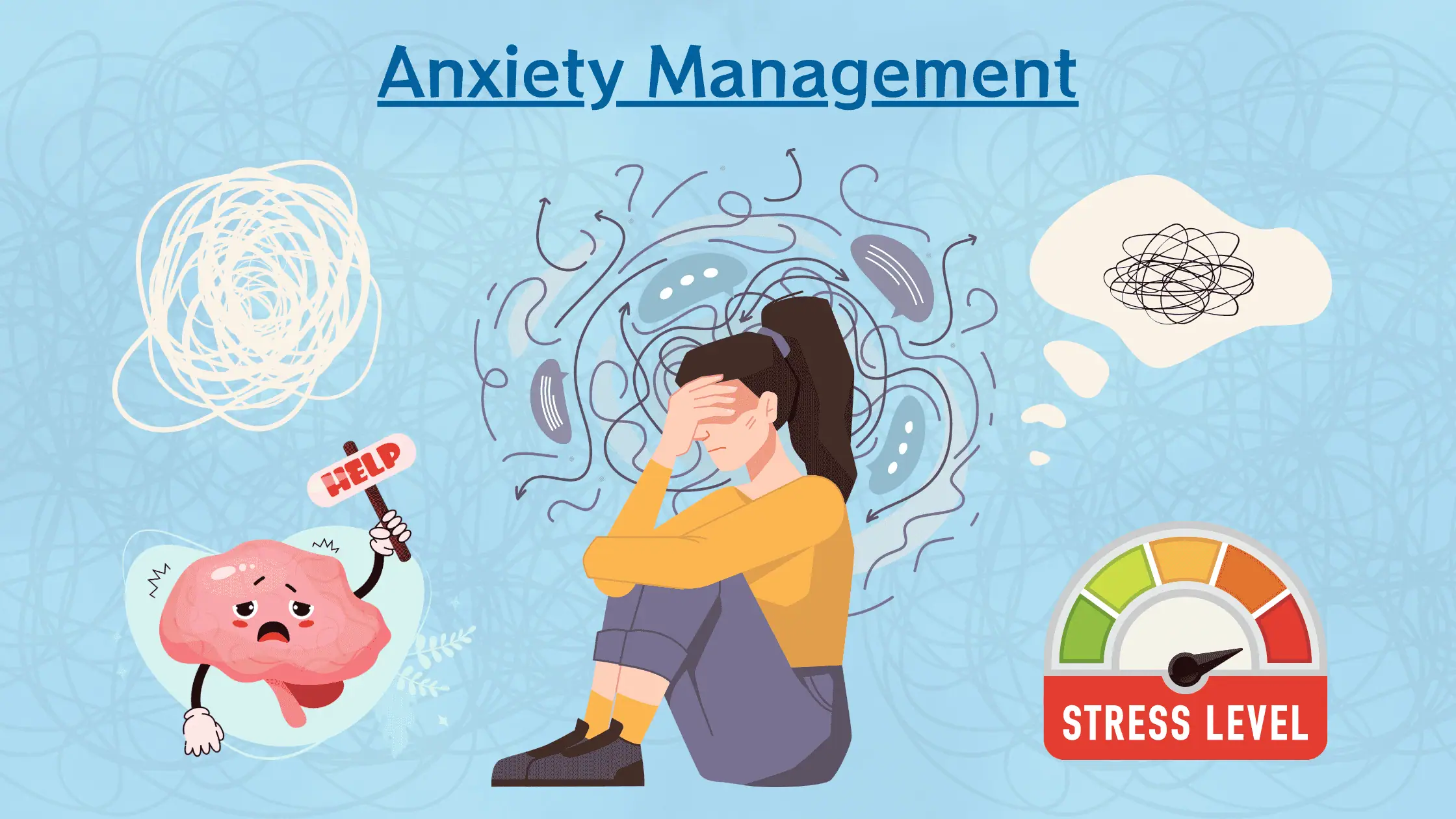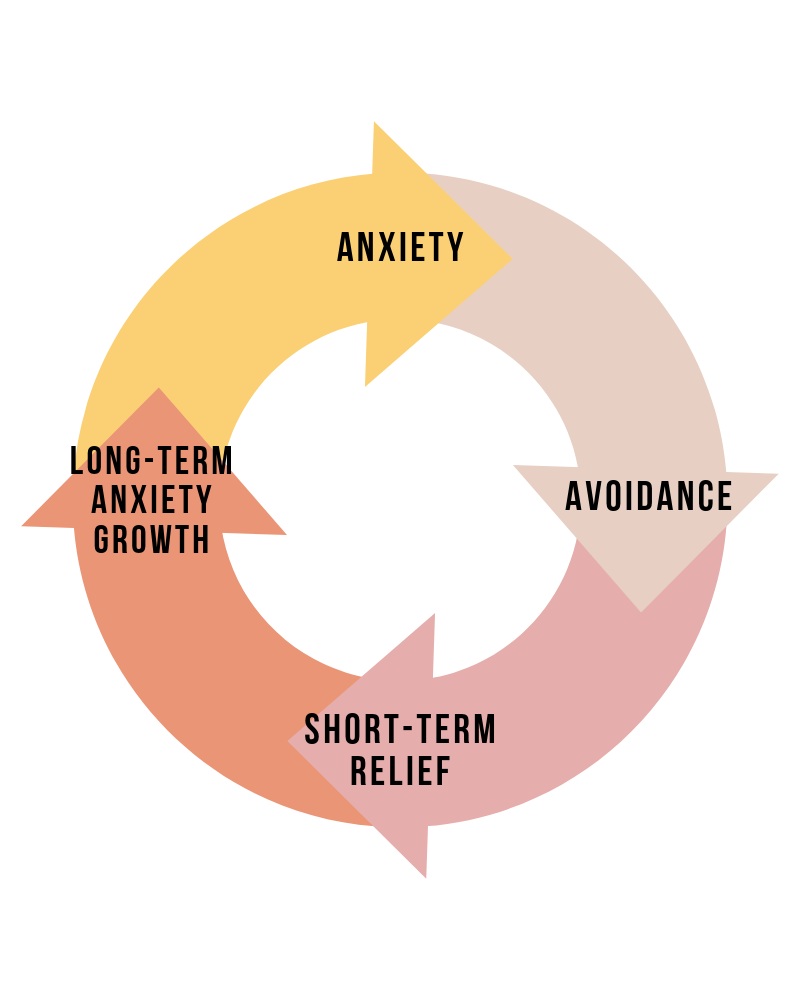Efficient Methods in Therapy for Anxiety Disorder: A Path to Healing
When dealing with anxiety disorders, you could really feel unsure and overwhelmed of where to transform. Reliable coaching techniques can lead the way for recovery, providing you with the tools to browse your difficulties. From cognitive-behavioral methods to mindfulness practices, each strategy supplies special benefits. Comprehending how these approaches interact can make a significant distinction in your journey. So, what are the vital components that will direct you towards lasting adjustment?
Recognizing Anxiousness Problems: A Thorough Summary
It's important to identify that they incorporate an array of problems defined by too much concern or worry when you assume concerning anxiety disorders. These disorders can materialize in various ways, including generalized anxiousness disorder, panic attack, and social anxiousness disorder. You might experience symptoms like rapid heartbeat, sweating, or difficulty concentrating. It prevails to feel overloaded, and these sensations can disrupt daily life.Understanding the origin of stress and anxiety is necessary. They can originate from genes, brain chemistry, or environmental elements. You might discover that particular circumstances cause your anxiety, making it important to determine these triggers.
Cognitive Behavior Treatment (CBT): Improving Thought Patterns

Mindfulness and Leisure Techniques: Growing Present-Moment Understanding
Mindfulness and leisure methods assist you grow present-moment recognition, enabling you to manage anxiousness better. By concentrating on the present moment, you can damage devoid of the cycle of concern and rumination that typically fuels stress and anxiety. Begin by exercising deep breathing exercises. Breathe in gradually with your nose, hold for a moment, after that exhale through your mouth. This simple strategy can relax your mind and body.Engage in mindfulness meditation by alloting a couple of mins every day to observe your thoughts without judgment. Focus on your breath, experiences, and the noises around you. You might additionally locate value in modern muscle mass relaxation, where you strained and loosen up each muscle team, promoting physical and mental ease.Incorporating these methods right into your daily regimen can create a greater sense of control, lower anxiety signs, and enhance your general health. Keep in mind, uniformity is vital to experiencing the benefits.
Exposure Treatment: Dealing With Concerns Slowly
Direct exposure treatment helps you encounter your fears gradually, allowing you to build confidence in time. By utilizing steady direct exposure techniques, you can gradually challenge what makes you anxious while developing effective coping systems. This process not just decreases your worry but also equips you to handle anxiety better.
Progressive Direct Exposure Strategies
You can effectively decrease anxiety and gain back control over your life when you challenge your anxieties slowly. Gradual exposure strategies involve encountering your fears detailed, starting with less intimidating circumstances. You might begin by visualizing the feared scenario, then progress to seeing video clips or images connected to it. Ultimately, you can practice facing the fear in the real world, yet only when you really feel all set. This method permits you to develop confidence as you move through each stage. Remember to pace on your own; hurrying can increase anxiety. Celebrate small victories along the way, as each step onward equips you. By continually using these strategies, you'll discover that your fears start to lose their grasp on your mind.
Building Coping Mechanisms
Building efficient coping systems is vital for managing anxiousness, specifically as you encounter your fears gradually via direct exposure therapy. Begin by recognizing your details fears and damaging them down right into manageable steps. By doing this, you can progressively confront each worry without becoming overloaded. If you struggle with social circumstances, beginning by practicing tiny interactions, like greeting a neighbor.Alongside gradual exposure, integrate leisure methods such as deep breathing or mindfulness to soothe your mind prior to encountering triggers. Keep a journal to track your development and commemorate tiny victories. Surround on your own with encouraging pals or a specialist who can assist you. Bear in mind, it's a trip-- persistence here and persistence will enhance your coping mechanisms, resulting in greater strength versus anxiousness.
Supportive Therapy: Building Depend On and Rapport
To properly support someone with anxiousness, establishing trust fund and rapport is vital from the very first session. You'll intend to develop a safe space where they really feel comfortable expressing their thoughts and sensations without judgment. Active listening is essential; show genuine rate of interest in what they share. Acknowledge their feelings and validate their experiences. It is very important to be understanding, as this aids construct a connection and encourages openness.Be consistent in your technique and keep discretion to additional strengthen that trust. Use open body language and make eye call to communicate your listening. Remember, your perseverance goes a lengthy means; building rapport takes time, and it's crucial to appreciate their pace. By fostering this encouraging environment, you'll equip them to involve more completely in the healing process, making it less complicated for them to explore their anxiousness and pursue healing.
Group Therapy: Shared Experiences and Collective Recovery
Group treatment can be an effective device for those managing anxiousness conditions, as it permits individuals to share their experiences and find relief in the understanding of others. In this encouraging setting, you can express your feelings without fear of judgment. Hearing others' stories can stabilize your own experiences, making you feel much less alone in your struggle.Participating in team therapy aids you create dealing techniques with shared knowledge and insights. As you listen to others, you may find new methods to tackle your anxiety that you had not thought about before.Moreover, the cumulative healing that happens in these sessions can foster a feeling of neighborhood, advising you that you're not encountering your challenges alone.Building connections with others who recognize your battle can increase your self-confidence and motivation to face your anxiety. Team therapy creates a space where development and recovery end up being a shared journey, encouraging you to take actions toward recuperation.
Integrating Way Of Living Changes: All Natural Strategies to Stress And Anxiety Monitoring
While therapy provides vital support, incorporating lifestyle modifications can substantially improve your capability to manage stress and anxiety. Beginning by integrating regular physical task into your regimen. Exercise launches endorphins, which can raise your state of mind and lower stress. Next off, take notice of your diet. Consuming a balanced diet abundant in fruits, veggies, and whole grains can favorably impact your mental well-being. Do not forget sleep-- go for 7-9 hours per night, as top quality remainder is crucial for psychological regulation.Mindfulness methods, such as reflection or yoga exercise, can likewise aid you remain based and present. Think about alloting time every day to exercise these methods. Restriction high levels of caffeine and alcohol usage, as they can exacerbate anxiety signs and symptoms. By making these holistic adjustments, you develop a more powerful structure for taking care of anxiousness, enhancing the benefits got from treatment. Bear in mind, every tiny step counts on your path to recovery.
Often Asked Inquiries
What Are the Common Physical Symptoms of Anxiousness Disorders?
Common physical signs and symptoms of stress and anxiety disorders include rapid heart price, shortness of breath, muscular tissue tension, sweating, and frustrations. You could additionally experience fatigue, wooziness, or stomach concerns, which can better complicate your every day life.
For How Long Does Counseling for Anxiety Normally Take?

Counseling for stress and anxiety commonly takes a few weeks to several months, relying on your private needs and progress. counselling for anxiety. You'll find that regular sessions help you develop dealing methods and gain understandings right into your stress and anxiety
Can Anxiousness Problems Be Completely Treated?

What Should I Perform in an Anxiety attack?
Throughout a panic attack, emphasis on your breathing. Breathe in deeply with your nose, hold for a minute, after that exhale gradually - counselling for anxiety. Ground on your own by calling things around you, and remind on your own it will certainly pass
Are There Medications for Anxiousness Problems?
Yes, there are several medicines for anxiety problems, consisting of benzodiazepines and antidepressants. You ought to seek advice from a health care professional to discover the ideal treatment strategy tailored to your certain requirements and circumstances for the very best outcomes. When you think regarding anxiety disorders, it's important to identify that they include an array of problems identified by excessive worry or concern. These problems can show up in numerous methods, consisting of generalised anxiety problem, panic problem, and social anxiousness condition. Structure efficient coping devices is important for managing anxiousness, especially as you encounter your worries progressively through exposure treatment. Group therapy can be an effective tool for those dealing with anxiousness conditions, as it permits people to share their experiences and find relief in the understanding of others. As you pay attention to others, you may discover brand-new methods to tackle your anxiousness that you had not taken into consideration before.Moreover, the cumulative healing that occurs in these sessions can promote a sense of area, reminding you that you're not facing your obstacles alone.Building connections with others that recognize your battle can increase your self-confidence and motivation to challenge your anxiety.